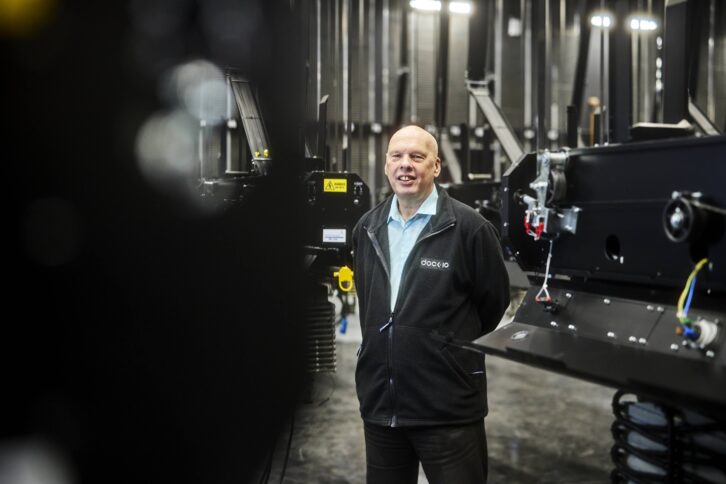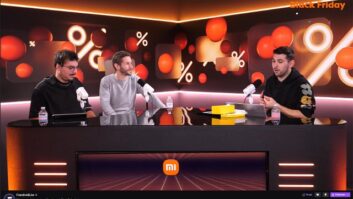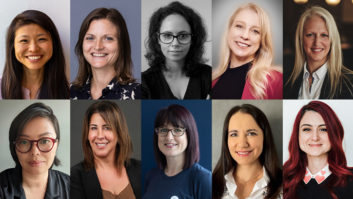Andrew Garnett, studio operations manager, dock10
Talk us through an average day in your role
I don’t think there is an average day. I have several routine tasks each day, but then a lot of situations come up that I have to react to.

As the studio operations manager, I have three teams of people working for me: the turnaround team who put in and take out the sets and lights for each show; the bookings team, who organise the studio, crew, and equipment bookings; and the front of house team, who liaise with our clients about dressing rooms, production offices, green rooms, car parking and audience handling etc.
I also look after security, approving people for passes, and I’m responsible for the scheduling system for quoting and scheduling jobs, both for the post team and the studios. I also liaise with the team responsible for the heating, ventilation, and the power of the dock10 building. And I have a bit of a health and safety brief, primarily across the studios team. So, it is quite a wide-ranging job, meaning that each day is very different.
How did you get started in the media industry?
Back in 1984, I was working at a company making circuit boards – and I fancied a change. I was interested in lighting and sound: I used to provide stage lighting for amateur theatre productions and ran a mobile disco in Northamptonshire. So, I thought I should apply to the BBC. Three months later, I was invited for an interview in London. After the first interview, I didn’t really know what I was being interviewed for. When they called me back for a second interview, they told me it was to be a sound operator in television.
I worked at TV Centre in London for about 10 years in the sound department and then used the knowledge I’d built up about the production process to become a studio manager – a combined technical and business coordination and management role, latterly this had craft team line management added in when I first looked after staff vision mixers then the staff camera team. I came to dock10 in 2011, shortly after the BBC moved key departments like sports and children’s TV out of London to Salford.
What training did you have before entering the industry?
When I started at the BBC it had a big technical training college at Wood Norton in Evesham. I was sent there for three months before I went ‘on station’ as the BBC used to call it – I think that was an RAF term they used in those days! It was an introductory training course where we learned to operate equipment. Then we learned on the job for nine months. That is where we really learned our craft. There was a final month at the end of the training programme where we had to prove that we could actually do the job – if we could, we were taken on.
Why do you enjoy working in the industry?
I suppose it’s the varied nature of it. When I was working as a sound operator, it was all about ‘the roar of the crowd and the smell of the grease paint,’ as they say. The build-up to a show was always exciting. And, at the BBC in London, you worked across a wide range of programmes – it felt like you were at the pinnacle of television not only in the UK, but also in the world. My job varies in a different way now. It’s not so much about the showbiz side of it, but about learning different skills. But, ultimately, I still have that desire to make the client happy, so that they come back for more.
What piece of advice would you give to someone looking to explore a similar role to yours?
A studio operations manager needs to be a little bit of a jack of all trades. You need enough knowledge across a wide range of areas so that when you engage with the experts, they are aware that you know what you’re talking about. That means they can’t pull the wool over your eyes! You have also got to be interested in how things work from a technical point of view, and in systems and processes.







